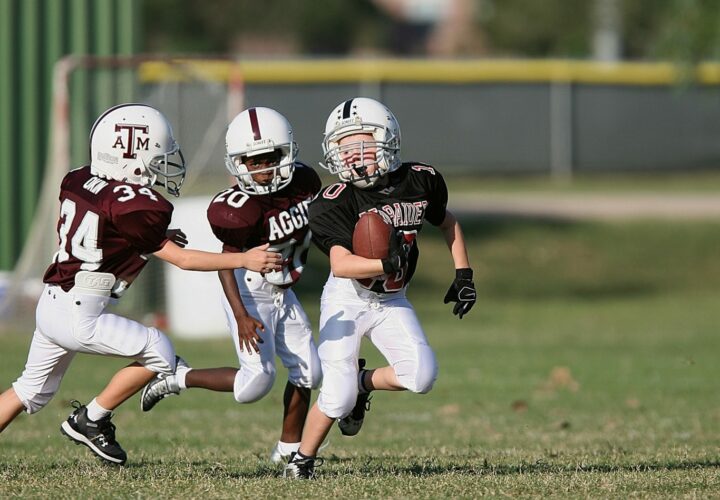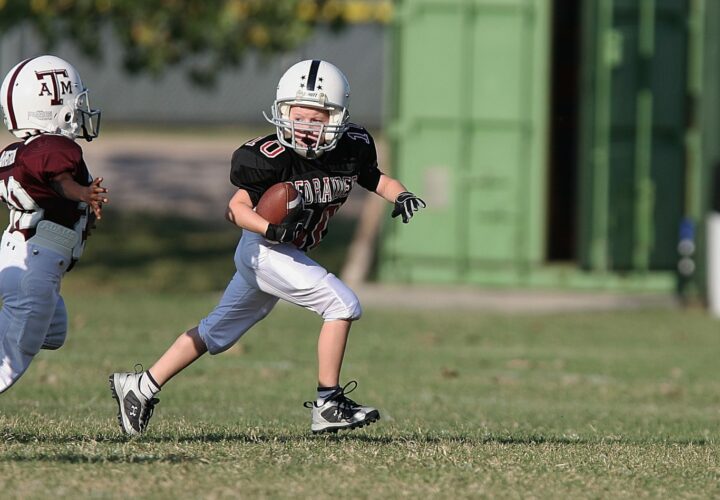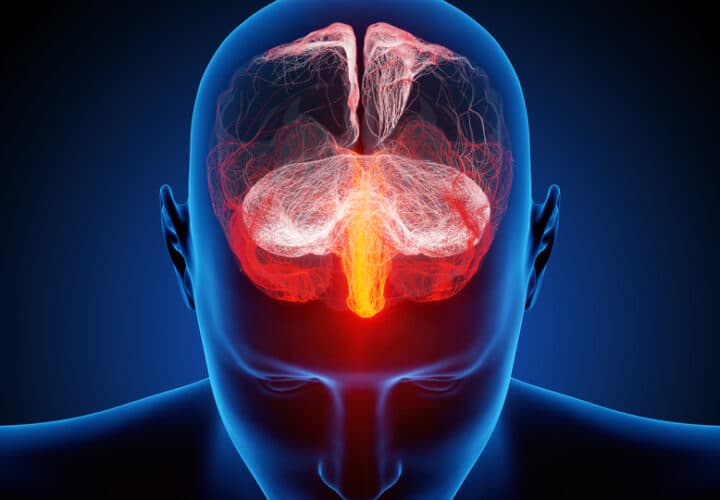A seemingly minor knock on the head can be devastating for some people. According to Queensland University molecular geneticist Lyn Griffiths and Bond University law professor Annette Greenhow, your genes could be the deciding factor.
Concussion and head trauma is a real and serious risk for many people — especially those who frequently get knocked on the head, like professional athletes. While most people suffer acute and relatively short-lived effects, such as dizziness and headache, in some cases symptoms persist for weeks, months or years. Ultimately, these events can result in long-term and debilitating neurological impairment.
Concussion in sports – from the junior to the elite level – is being prioritized as a public health concern. In Australian, a senate inquiry into concussions and repeated head trauma in contact sport is due to report in August of 2023. Of note in the hearings has been the AFL’s (Australian Football League’s) acknowledgement of an association between head trauma and chronic traumatic encephalopathy, a neurodegenerative disease that can only be diagnosed in post-mortem autopsy, and that several studies have found in the brains of professional high-impact-sport athletes. (Editor’s note: In one U.S. study of the brains of 111 former NFL football players, CTE was found in 99 percent of the study subjects.)
The latest data show concussion can happen in nearly every sport, not just contact sports, with, in Australia, almost 3,100 hospitalizations for concussion caused by sports in 2020 and 2021. In the U.S., data shows that between 1.7 and 3 million sports- and recreation-related concussions happen each year. Around 300,000 of those concussions are from football. Two in every 10 high school athletes who play contact sports — including soccer and lacrosse — will get a concussion this year, according to the University of Pittsburgh Medical Center.
But not everyone responds the same way to concussion. At present, there are few reliable indicators of who will suffer specific or long-term effects. We do know the number and severity of symptoms and multiple concussions are important. And we are developing understanding of how a person’s genes play a role.
What is a concussion, and what are its symptoms?
Concussion is a form of traumatic brain injury (TBI) that can result in neurological dysfunction, including migraine, cognitive deficit, confusion, slowed reaction times, personality changes, drowsiness and emotional changes. Some people also suffer long-term problems with memory, thinking and other symptoms, such as anxiety and mood disturbances.
According to the CDC, concussion symptoms include:
- Headache or the feeling of “pressure” in one’s head;
- Nausea or vomiting;
- Balance problems or dizziness;
- Vision problems: double or blurry vision;
- Irritation from light or noise;
- Confusion;
- Problems with concentration or memory;
- Feeling sluggish, hazy, foggy, groggy.
What happens to the brain in a concussion?
After brain injury there is a cascade of events that impacts the health of neurons and affects the flow of chemical ions, such as calcium, in the brain. Mutations in genes that affect the transport of neuronal ions (atoms or molecules with a positive or negative electrical charge), termed ion channel genes, can also affect how the brain works.
How to genetics play a role in what happens after a bump on the head?
The strongest evidence of a connection between concussion response and ion channel gene function is from patients with a family history of a rare type of migraine (hemiplegic migraine, which causes the sufferer to experience severe migraine associated with motor impairment and muscle weakness) and episodic ataxia (which causes bouts of movement incoordination).
Specific types of these severe neurogenetic disorders are caused by mutations in the calcium channel gene CACNA1A. Patients with these mutations can be highly sensitive to head impacts. Some specific mutations can see very minor head trauma lead to concussion, seizures, cerebral oedema (swelling), coma and sometimes death.
Research has also shown 35 percent of patients with mutations in a second hemiplegic migraine ion channel gene, ATP1A2 – which is linked to hemiplegic migraine, ataxia, epilepsy and other seizures and controls brain sodium and potassium levels, report concussion symptoms following mild head trauma.
Focusing on all ion channel genes, our genomics lab (Griffiths Centre for Genomics and Personalised Health) recently studied 117 concussion-affected people. We found mutations in 21 ion channel genes, 14 of which could have an impact on concussion susceptibility or outcomes.
Other types of genes might be involved in concussions and brain injury
Apart from a role for ion channel genes, there have been a number of additional genes linked by research to concussion.
One of the most studied is the ApoE gene, which is involved in transporting cholesterol in the body and has long been recognised as a risk factor for Alzheimer’s disease. Studies have indicated a variant of this gene — ApoE4, also known as the “Alzheimer’s gene” for its association with Alzheimer’s risk — is linked with poorer and more long-term concussion outcomes. Those who carry this variant are also more likely to have significant signs of brain degeneration after concussion.
Another genetic variation in the ApoE gene that makes it less productive has been linked to a higher likelihood of concussion.
Beyond ApoE, genes that help control a variety of brain functions have been suggested as factors in concussion – including some involved in neuronal growth, dopamine receptors and, most recently, brain axon (nerve fibre) development.
Some people have a predisposition for traumatic brain injury
Questions concerning the link between genetic predisposition to injury in sport are not new. Twenty years ago, the Australian Law Reform Commission referred to research showing
[…] a milder form of this condition [CTE or punch-drunk syndrome] could occur in players of rugby, soccer and other sports associated with repetitive blows to the head.
In 2016, the Australian Institute of Sport (AIS) released a position statement on the ethics of genetic testing and research in sport. But the latest AIS Concussion and Brain Health Position Statement does not mention the use of genetic information concerning concussion-related susceptibility.
Currently, there is available DNA diagnostic testing for the two ion channel genes already implicated in concussion, because this testing is used for the diagnosis of familial hemiplegic migraine and episodic ataxia. But genetic testing is not currently undertaken for concussion.
In Australia, it is difficult to find information on whether genetic testing occurs in elite sport. In the United Kingdom, genetic testing does take place, although it is not common. Athletes and support staff there are open to the idea of genetic information being used to improve sport performance and reduce injury risk.
Genetic testing for concussion risk?
It is vital there is more careful consideration of genetic factors involved in concussion development and response. Clarification of the role of ion channel gene mutations and other gene variants, along with information from additional biomarkers and imaging, will be important in developing better concussion management and treatment approaches.
Before introducing genetic testing, regulatory and governance frameworks would also need careful consideration. Wider ethical and legal implications will need to be fully examined including health privacy laws, privacy of genetic samples, anti-discrimination laws and employment-related laws, especially in professional sport.
With the growing awareness of concussion-related injury risks highlighted by the Senate inquiry, further research in Australia could also investigate attitudes toward the use of genetic testing and predisposition to injury risk in sport.![]()





